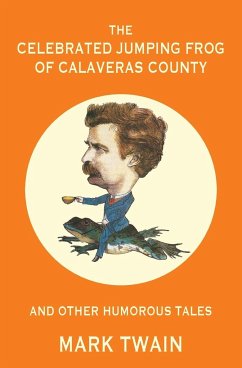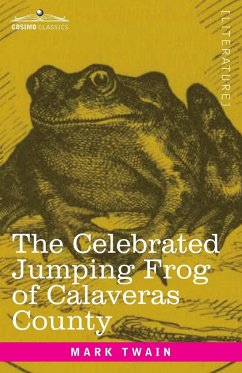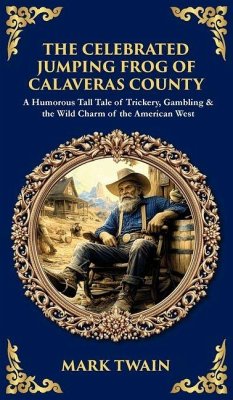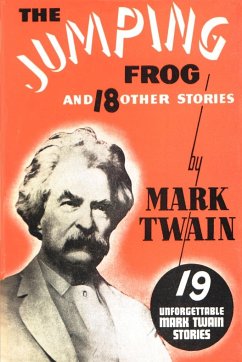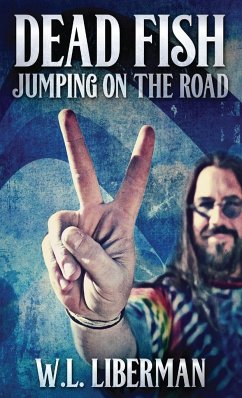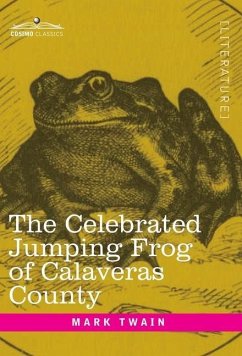
The Celebrated Jumping Frog of Calaveras County: And Other Sketches
And Other Sketches
Versandkostenfrei!
Versandfertig in über 4 Wochen
27,99 €
inkl. MwSt.

PAYBACK Punkte
14 °P sammeln!
"By Mark Twain's story of the Frog, he scaled the heights of popularity at a single jump, and won for himself the sobriquet of The Wild Humorist of the Pacific Slope." -John Paul, editor, The Celebrated Jumping Frog of Calaveras County (1869) The Celebrated Jumping Frog of Calaveras County is a short story by Mark Twain, originally published weekly in The Saturday Press in 1865, which brought him his first great success. It is a humoristic story about a gambler, Jim Smiley, who trained a frog named Daniel Webster to jump and then won money by betting on the frog. This jacketed hardcover editio...
"By Mark Twain's story of the Frog, he scaled the heights of popularity at a single jump, and won for himself the sobriquet of The Wild Humorist of the Pacific Slope." -John Paul, editor, The Celebrated Jumping Frog of Calaveras County (1869) The Celebrated Jumping Frog of Calaveras County is a short story by Mark Twain, originally published weekly in The Saturday Press in 1865, which brought him his first great success. It is a humoristic story about a gambler, Jim Smiley, who trained a frog named Daniel Webster to jump and then won money by betting on the frog. This jacketed hardcover edition of Twain's first book The Celebrated Jumping Frog of Calaveras County, And Other Sketches (1867), is an entertaining collection of 27 stories, including the title story.




